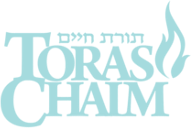When Adar enters joy increases. When Av enters joy decreases.
What is it about these two months that causes joy to fluctuate?
There is much discussion in the world of relationships about the ratio of criticism to praise. Marriage researcher John Gottman has found that successful couples provide five positive statements for every criticism. Research in the business world has shown that effective teams have an almost 6:1 ratio of praise to criticism, while poor teams have a ratio of 1:3. Across the board, praise-laden environments strengthen and encourage by increasing positive feeling, instead of focusing on what is lacking.
Marriage and business are very human relationships. But could the same be true in the relationship between man and G-d?
Prayer consists of requests, “bakasha”, and gratitude “hoda’ah”. When we make requests we focus on what is lacking, and when we praise we focus on what we are privileged to have. What are our ratios relative to Hashem?
It is obvious to us all that we tend to get much more energized in prayer when there is a pronounced need. Our daily Amidah has thirteen blessings dedicated to requests of various kinds, and only one explicitly dedicated to gratitude. And while it is common to send out a call for people to pray for someone in crisis, it is unheard of to be called upon to praise G-d when that person emerges from the crisis. That is not good for our ratio.
The month of Av marks the Churban, the greatest loss experienced by the Jewish people, and the event that brought so many other difficulties in its wake. It brings us to focus on what we lack, and leads in turn to the Elul and Yamim Noraim period, when we plead with G-d to make up those losses, individual and national. It is a period where criticisms – or, more accurately, requests for things to be better – vastly outnumber praise. Thus joy is reduced.
The month of Adar, on the other hand, ushers in the season of redemption, beginning with Purim and continuing on to Pesach. This is the season where, in the words of the Rambam (Introduction to Mishneh Torah):
“We are to remind ourselves of the praises of G-d and the salvation that He brought us, and that He was responsive to our prayers, such that we can bless Him and praise Him, and that we inform future generations that what the Torah (Devarim 4:7) promises us is indeed true, ‘For who is a great nation that has a G-d near to it as our G-d is near to us whenever we call upon Him.’”
Purim and Pesach are seasons when we focus not on what we are missing but on what we have. Indeed, there is a remarkable parallel between the Jerusalem Talmud’s statement – made known by the Rambam at the conclusion of his laws of Megillah – that even in the End of Days, when other festivals will perhaps be gone, it is the festival of Purim that will remain; and the Midrashic statement (Vayikra Rabba 9:7) that even in the End of Days, when all prayers of request will be gone, praise and offerings of thanksgiving will remain. Purim is about gratitude and praise, about feeling complete. Thus joy is increased.
A truly beautiful custom has become widespread in recent years, to use Purim as a time for intense, personal prayer. A host of Chassidic sources speak of Purim as a time for Divine generosity, in the spirit of Purim when we are all to share charity indiscriminately. Indeed, in our shul, I am annually inspired by – and try to join – the many people who come to the shul throughout Purim night to recite Tehillim.
This is a beautiful custom, and it would seem that there is no better time to pray than the day dedicated to teaching us the efficacy of prayer.
But at the same time, let us not forget to praise. Purim comes on the heels of the Fast of Esther, such that our prayers yield to celebration of the deliverance achieved by those prayers.
When we make requests we focus on what we lack. Simcha is generated by recognizing what we are privileged to have.
Tehillim is a richly varied book, filled with words of prayer – and words of praise.
Let us pray our hearts out. But let us not forget to praise Him, to thank Him. Let us not forget the joy Hashem has granted us.
A Freilichen Purim!
